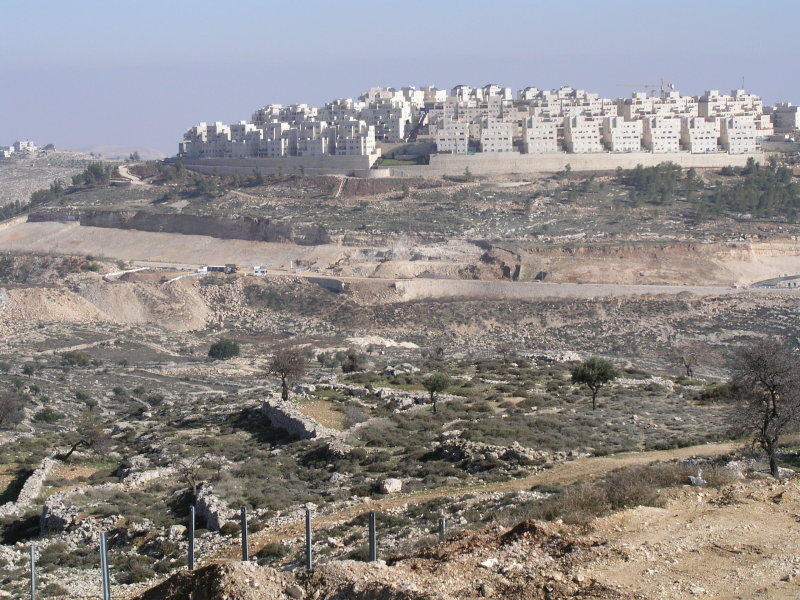Mahmoud Abbas plans Turkey visit as Israel pushes settlement plan ahead

By Sara Rajabova
Palestinian President Mahmoud Abbas will pay his first visit abroad to Turkey next week, after Palestine's UN status was upgraded, Anadolu news agency reported Wednesday quoting Palestine's Ambassador to Turkey Nabil Maarouf.
Maarouf said the aim of the visit was to thank the Turkish government for its support to Palestine and Abbas would hold talks with Turkish President Abdullah Gul, Prime Minister Recep Tayyip Erdogan and Foreign Minister Ahmet Davutoglu on establishment of a national reconciliation government.
The UN upgraded Palestine's status to "non-member observer state" last week. The title means Palestine will be de facto acknowledged as a sovereign state within the UN.
Upgraded status will enable Palestine to apply to several agencies, including International Criminal Court, to sue Israel over war crimes.
Turkish President Gul said Wednesday at a press conference that the UN vote is the reflection of the world's conscience, Hurriyet Daily News reported.
"I hope that those who said 'no' derive a lesson from this. Because opposing the world's conscience will wear them down after the conscience is voiced in this way," he said.
The Turkish president also said that Israel's decision to expand settlements to a sensitive area in the occupied West Bank is aimed at separating Palestinians in Jerusalem and the West Bank, Todays Zaman newspaper reported.
Gul stated that Israeli settlements have been a major obstacle to renewing proximity talks between Israel and Palestinians and that Israel has been building these "illegal" settlements as the world watches. The president's remarks came on a day when Israel moved forward with plans to build some 3,000 settler homes in one of the most sensitive areas of the occupied West Bank, in defiance of international protests.
Gul also said the impact of the settlements would cause the situation to "definitely turn against Israel."
In response to the UN General Assembly's de facto recognition of Palestinian statehood last Thursday, Israel announced the next day it would build new dwellings for settlers on land near Jerusalem that Palestinians seek for a future state. The decision by Prime Minister Benjamin Netanyahu's pro-settler government to build houses in the E1 area for the first time raised the alarm among Palestinians and in world capitals. The Turkish president warned Israel of "very dangerous consequences" over the latest expansion of settlements, stating that the new step was aimed at cutting links between Palestinians in Jerusalem and the West Bank, and recalled warnings from European countries.
Israeli housing on the corridor's barren hills could bisect the West Bank, cut off Palestinians from Jerusalem and further dim their hopes for a contiguous state.
The EU states expressed their displeasure over the settlement expansion plans and said they would summon Israeli envoys for consultations, as five EU countries have already done.
Italy also summoned the Israeli envoy in Rome, following the UK, France, Spain, Sweden and Denmark in such a move.
The United States has also urged Israel to reconsider the settlement plan, saying the move hinders peace efforts with the Palestinians.
UN Secretary General Ban Ki-moon said that Israel's plans to build 3,000 new homes in East Jerusalem and West Bank settlements "would represent an almost fatal blow to remaining chances of securing a two-state solution", DPA reported.
However, Israeli PM Benjamin Netanyahu said on Wednesday the global condemnation, some of it from the Jewish state's closest traditional allies, would not deter it from defending its "vital interests", Reuters reported.
Analysts said Netanyahu hoped to solidify right-wing support by promoting settlements in the run-up to the parliamentary election, even at the risk of diplomatic isolation.
U.S.-sponsored Israeli-Palestinian talks collapsed in 2010 in a dispute over settlement building, and Abbas pressed ahead with his unilateral move at the United Nations over U.S. and Israeli objections and calls to return to the negotiating table.
Israel's settlement projects in the West Bank and East Jerusalem, which Israel captured in the 1967 war, are illegal under international law. Israel cites historical and Biblical links to the two areas, where approximately 500,000 Israelis and 2.5 million Palestinians now live.
